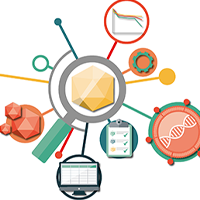Strategies & technologies for the characterization of adeno-associated virus genomes
Cell & Gene Therapy Insights 2019; 5(4), 455-463.
10.18609/cgti.2019.050
Adeno-associated viral (AAV) vectors are being used in a growing number of clinical trials, with many in late phase development. A robust analytical toolkit is essential for ensuring the safety and efficacy of these products. Genome characterization is one of the most critical tools for confirming the identity and quality of AAV products. Methods used for genome characterization vary based on the desired information. For example, alkaline gel electrophoresis allows for visualization of full-length genomes, while agarose gel restriction mapping confirms the fidelity of sequence specific sites across the genome by producing banding patterns stereotypical of the interrogated sequences. Given that AAV is a single-stranded DNA virus, restriction mapping is not straightforward due to the required conversion of the AAV genome to double-stranded DNA prior to enzymatic digestion. Additionally, gel-based readouts are dependent on subjective interpretation by the analyst performing the analysis and this can lead to high variability in reported data. In this paper, we outline strategies for optimizing genome identity characterization via gel-based methods and discuss alternative technologies currently being used for AAV genome analysis that can reduce ambiguity and improve the integrity of viral genome characterization.
